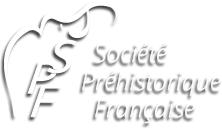 A noter / Autour de la Préhistoire
A noter / Autour de la Préhistoire 
The Scientific and Social programme of the 2020 Annual Meeting will continue at Virtual Annual Meeting.
Please follow a new website
http://www.e-a-a.org/eaa2020virtual
for more information.
Congrès, colloques, réunions - Appel à contributions / Call for papers
26-30 août 2020
Budapest

Session #457 - 26th Annual Meeting of the European Association of Archaeologists : Networking
Transmission of knowledge implies social relationships among people that interact during learning processes. The multiple expressions of the Prehistoric societies suggest that different knowledge transmission models probably existed through time, space and social organisations, such as: the autodidactic training, the increasing implication of novices in communities of practice and the selection of pupils taught by an expert. These different systems of learning play a key role in developing social relationships among people and building or reinforcing cognitive capacities of novices approaching new skills.
Nevertheless, addressing these aspects in archaeological field is not an easy task due to the lack of direct behavioural information regarding the interaction between novices and experts and also the difficulty to reconstruct the transmission processes only through the analysis of tools or objects as the final part of a learning sequence. From a methodological point of view, the multidisciplinary approach is currently the preferred method to address the transmission of technical knowledge. Indeed, behavioural and cognitive studies can be extremely helpful in connecting the archaeological data within a wider framework suggesting which human behaviours and cognitive capacities played a key role in these mechanisms. Furthermore, the application of experimental archaeology allows to test hypotheses on learning systems though dedicated and controlled experiments in order to provide interpretative models explaining how knowledge transmission likely worked in prehistoric communities. On these premises, the session aims to bring together scholars interested in apprenticeship systems and skill development to present their researches on prehistoric contexts and discuss the archaeological evidence supporting knowledge transmission, how to methodologically address the reconstruction of learning behaviours and propose models interpreting mechanisms of technical knowledge transmission in ancient human groups.
Main organiser:
Vanessa Forte
Co-organisers:
Nuria Castañeda Clemente
Francesca Romagnoli
Plus d'infos
Submission deadline : 13 february 2020
Via



